The Wreck is a 3D, emotional and mature visual novel which presents the tale about sisterhood, motherhood, grief and survival. We follow the story of Junon, a failed screenwriter as she attempts to make it through the most pivotal day in her life. We’ll relive the past, alter the present, and embrace the future. Because without our help, Junon’s plot might end in a wreck.
We are super excited to have this gem available on GOG, and we had an absolute pleasure to talk to The Pixel Hunt’s Florent Maurin – one of the creators of The Wreck and a person responsible for its deep and sensitive story.Learn more about the game’s emotional journey, its inspiration, meaning of main themes and more! Let’s jump right into it.
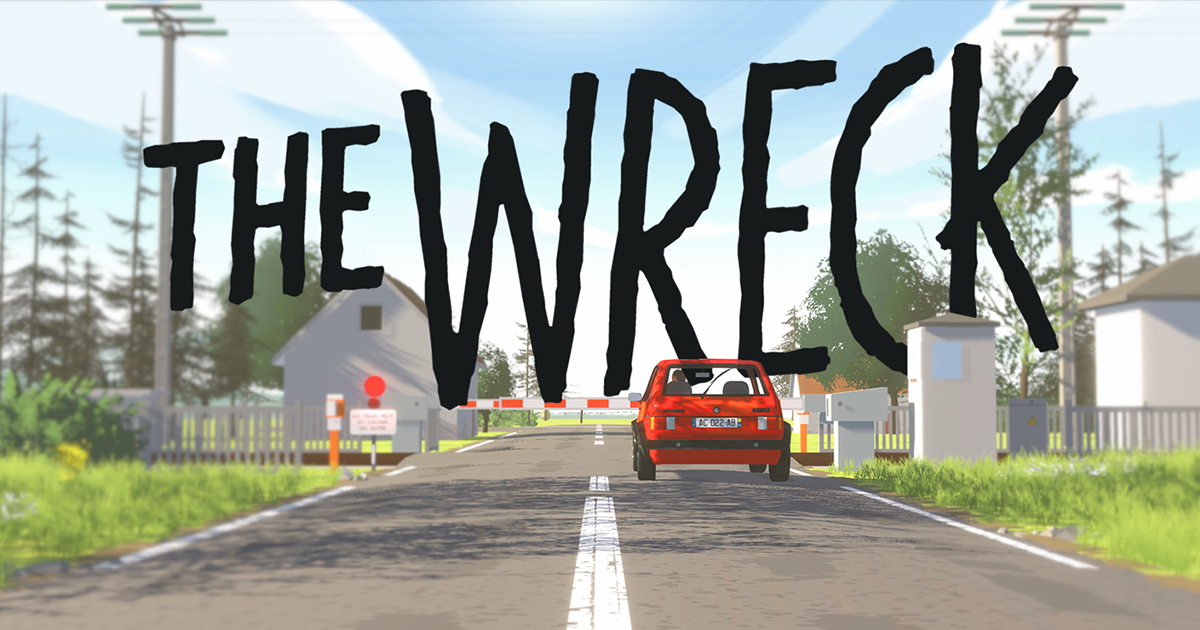 The Wreck, as well as other studio’s titles are mature, narrative-driven visual novels which focus on very emotional aspects of our lives, with all its ups and downs. What makes video games a good medium for experiencing such stories?I’ll admit it’s a tad counter-intuitive indeed! Usually, when we think about video games, we imagine power fantasies that throw us in an imaginary world, far away from our everyday life. Games are more often than not action-packed, systems-based, and they provide us with a much needed escapism. But at The Pixel Hunt, we try to explore other aspects of what they can be. That’s probably related to the fact that I’ve been a journalist for 10 years before switching careers: I’m really interested in the real world around us, and the stories within it. I find it amazing to try and tell those stories - which are often challenging and sad, but also always hopeful - in an interactive way, for players to explore them. Games allow us to make decisions and face consequences in a confined and safe space, and thus to understand complicated situations in an intimate way. I think it’s a very cathartic medium, especially when it’s reality-inspired.Could you share more light about the process of writing the story of The Wreck? What was your main inspiration for this project?As we were putting the final touches to our previous title, Bury me, my Love, I was driving my youngest daughter to daycare when our car got into a collision with a truck. Luckily nobody was hurt, but the experience in itself was very intense. I had the feeling that time was slowing down, and I experienced what I thought was a movie trope: I saw fragments of my life flash before my eyes. It was very weird. I looked into it afterwards and it turns out there’s a scientific explanation: when you’re facing an extreme situation, your brain parses your memories in search of significant previous experiences - so those “images” you “see” may be proof of its frantic activity to try and save you. I thought it was an interesting basis and setting for a game. Coming up with the story was then pretty straight forward: as I didn’t want to make a game that would “just” be depressing, I tried to imagine a character who had nowhere to go but up - that’s how Junon, our main protagonist, was born.
The Wreck, as well as other studio’s titles are mature, narrative-driven visual novels which focus on very emotional aspects of our lives, with all its ups and downs. What makes video games a good medium for experiencing such stories?I’ll admit it’s a tad counter-intuitive indeed! Usually, when we think about video games, we imagine power fantasies that throw us in an imaginary world, far away from our everyday life. Games are more often than not action-packed, systems-based, and they provide us with a much needed escapism. But at The Pixel Hunt, we try to explore other aspects of what they can be. That’s probably related to the fact that I’ve been a journalist for 10 years before switching careers: I’m really interested in the real world around us, and the stories within it. I find it amazing to try and tell those stories - which are often challenging and sad, but also always hopeful - in an interactive way, for players to explore them. Games allow us to make decisions and face consequences in a confined and safe space, and thus to understand complicated situations in an intimate way. I think it’s a very cathartic medium, especially when it’s reality-inspired.Could you share more light about the process of writing the story of The Wreck? What was your main inspiration for this project?As we were putting the final touches to our previous title, Bury me, my Love, I was driving my youngest daughter to daycare when our car got into a collision with a truck. Luckily nobody was hurt, but the experience in itself was very intense. I had the feeling that time was slowing down, and I experienced what I thought was a movie trope: I saw fragments of my life flash before my eyes. It was very weird. I looked into it afterwards and it turns out there’s a scientific explanation: when you’re facing an extreme situation, your brain parses your memories in search of significant previous experiences - so those “images” you “see” may be proof of its frantic activity to try and save you. I thought it was an interesting basis and setting for a game. Coming up with the story was then pretty straight forward: as I didn’t want to make a game that would “just” be depressing, I tried to imagine a character who had nowhere to go but up - that’s how Junon, our main protagonist, was born.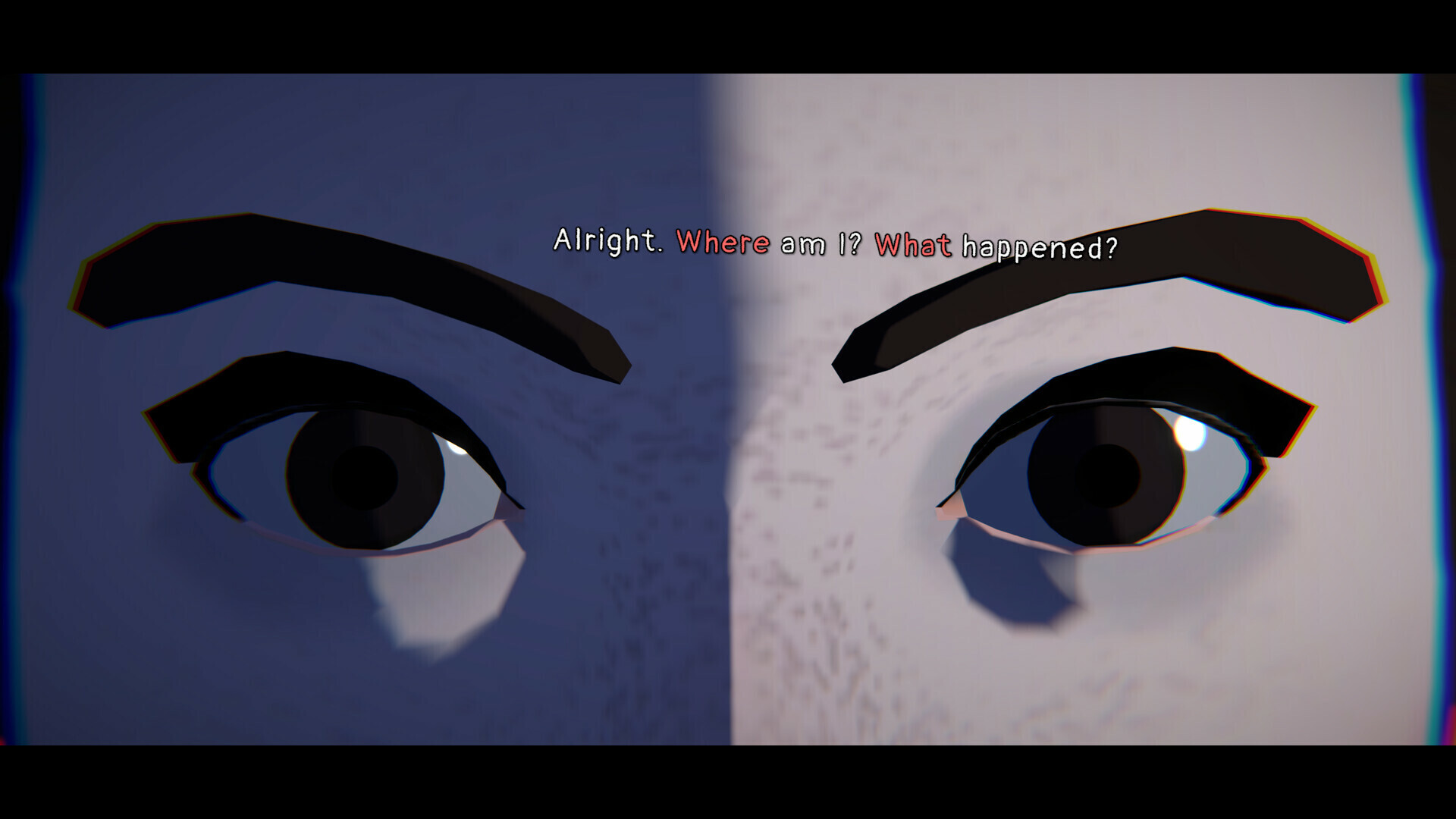 The Wreck’s tale also focuses on the time itself, the past, the present and the future and how they all affect life. Could you elaborate on this theme?This specific theme is a bit more intimate. For a long, long time, I was rather afraid of change. I’m not sure why exactly - although I have ideas - but I had to wait until I was in my 30s to make life changing decisions. And this happened only because at that time, I had to face a rather complicated personal situation. The thing is, I didn’t become “someone new”. I’m still very much the me I was in the past. Just, something clicked, and from that moment on taking risks and making “big” decisions, decisions that were coherent with who I am, was suddenly not complicated anymore. That actually is what The Wreck’s story is all about: how, sometimes, trauma can lead you to reconnect with the person you’ve always been, and allow this person to bloom in the future. I hope that doesn’t sound too cheesy when said out loud!
The Wreck’s tale also focuses on the time itself, the past, the present and the future and how they all affect life. Could you elaborate on this theme?This specific theme is a bit more intimate. For a long, long time, I was rather afraid of change. I’m not sure why exactly - although I have ideas - but I had to wait until I was in my 30s to make life changing decisions. And this happened only because at that time, I had to face a rather complicated personal situation. The thing is, I didn’t become “someone new”. I’m still very much the me I was in the past. Just, something clicked, and from that moment on taking risks and making “big” decisions, decisions that were coherent with who I am, was suddenly not complicated anymore. That actually is what The Wreck’s story is all about: how, sometimes, trauma can lead you to reconnect with the person you’ve always been, and allow this person to bloom in the future. I hope that doesn’t sound too cheesy when said out loud!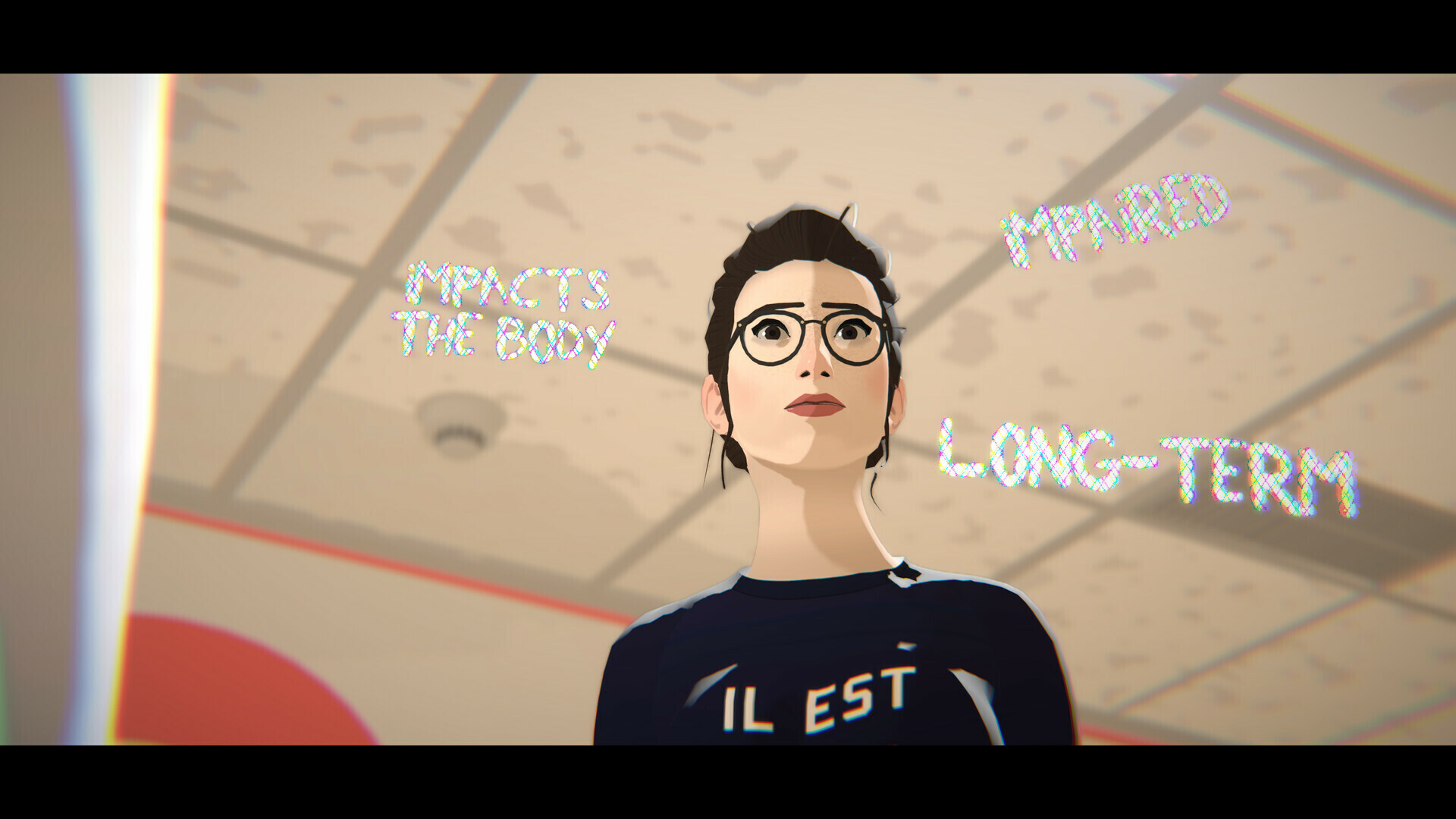 Florent, you are a former gaming journalist, is that background something that helps you now, when you stand on the opposite end of the industry? How does it affect your work?Actually, I was a kids’ journalist, not exactly a gaming journalist. But that might have been even better. I have had to play a lot of video games that I probably would never have touched otherwise (and got to learn who Alexandra Ledermann is along the way), which was pretty cool because as a game designer I firmly believe that inspiration and game mechanics ideas can come from anywhere (even from outside video games!). But also, writing for kids is a great exercise: you have to be absolutely sure to understand the complicated things you’re writing about in order to explain them in the simplest possible ways. It’s a great way to develop an analytical mind, communication skills, and research abilities, qualities that are very much needed as a gamedev. In general, I’d say that the industry benefits greatly from making room for people with different backgrounds anyway. It’s true for the skill sets, of course, but also in a more general sense. If we want more diverse games, we need more diverse teams, more women, more POC, more people from varied socio-economic backgrounds. And it’s maybe because I’m getting old and I’ve played a lot, but I personally think we could REALLY enjoy more diverse games!
Florent, you are a former gaming journalist, is that background something that helps you now, when you stand on the opposite end of the industry? How does it affect your work?Actually, I was a kids’ journalist, not exactly a gaming journalist. But that might have been even better. I have had to play a lot of video games that I probably would never have touched otherwise (and got to learn who Alexandra Ledermann is along the way), which was pretty cool because as a game designer I firmly believe that inspiration and game mechanics ideas can come from anywhere (even from outside video games!). But also, writing for kids is a great exercise: you have to be absolutely sure to understand the complicated things you’re writing about in order to explain them in the simplest possible ways. It’s a great way to develop an analytical mind, communication skills, and research abilities, qualities that are very much needed as a gamedev. In general, I’d say that the industry benefits greatly from making room for people with different backgrounds anyway. It’s true for the skill sets, of course, but also in a more general sense. If we want more diverse games, we need more diverse teams, more women, more POC, more people from varied socio-economic backgrounds. And it’s maybe because I’m getting old and I’ve played a lot, but I personally think we could REALLY enjoy more diverse games!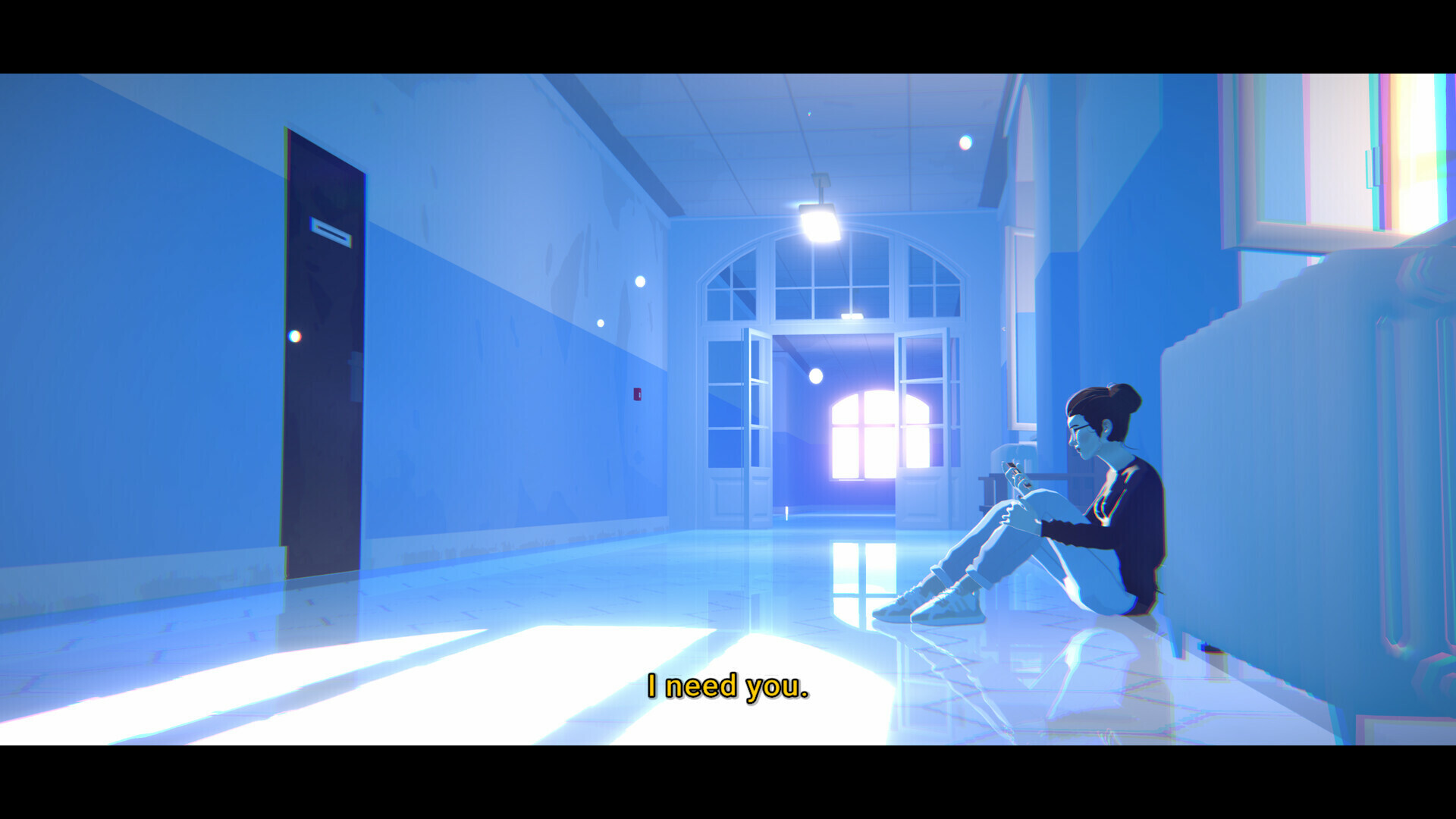 Is there anything you’d like to tell our community before they jump into the skin of Junon and explore her story?Good luck and have fun! Or don’t, actually. I’m not a huge fan of this association, “games = fun”. Don’t get me wrong, though: I too absolutely love playing games “just for fun”, throwing fireballs, making things explode and slashing through mobs of enemies. I just think it’s not mandatory. Not every movie is a superhero blockbuster. Not every novel is written by Tom Clancy. And it always makes me a little bit sad when I read player reviews that say that a game isn’t “a real game” because it’s “not even fun”. Video games can be entertaining in a lot of different ways, to a lot of different players. So good luck and cry a bit and end your playthrough with a sigh of relief because you feel like an invisible weight has been lifted off your chest, even though you didn’t even know it was there to begin with. That’s the absolute best compliment I could dream of.
Is there anything you’d like to tell our community before they jump into the skin of Junon and explore her story?Good luck and have fun! Or don’t, actually. I’m not a huge fan of this association, “games = fun”. Don’t get me wrong, though: I too absolutely love playing games “just for fun”, throwing fireballs, making things explode and slashing through mobs of enemies. I just think it’s not mandatory. Not every movie is a superhero blockbuster. Not every novel is written by Tom Clancy. And it always makes me a little bit sad when I read player reviews that say that a game isn’t “a real game” because it’s “not even fun”. Video games can be entertaining in a lot of different ways, to a lot of different players. So good luck and cry a bit and end your playthrough with a sigh of relief because you feel like an invisible weight has been lifted off your chest, even though you didn’t even know it was there to begin with. That’s the absolute best compliment I could dream of.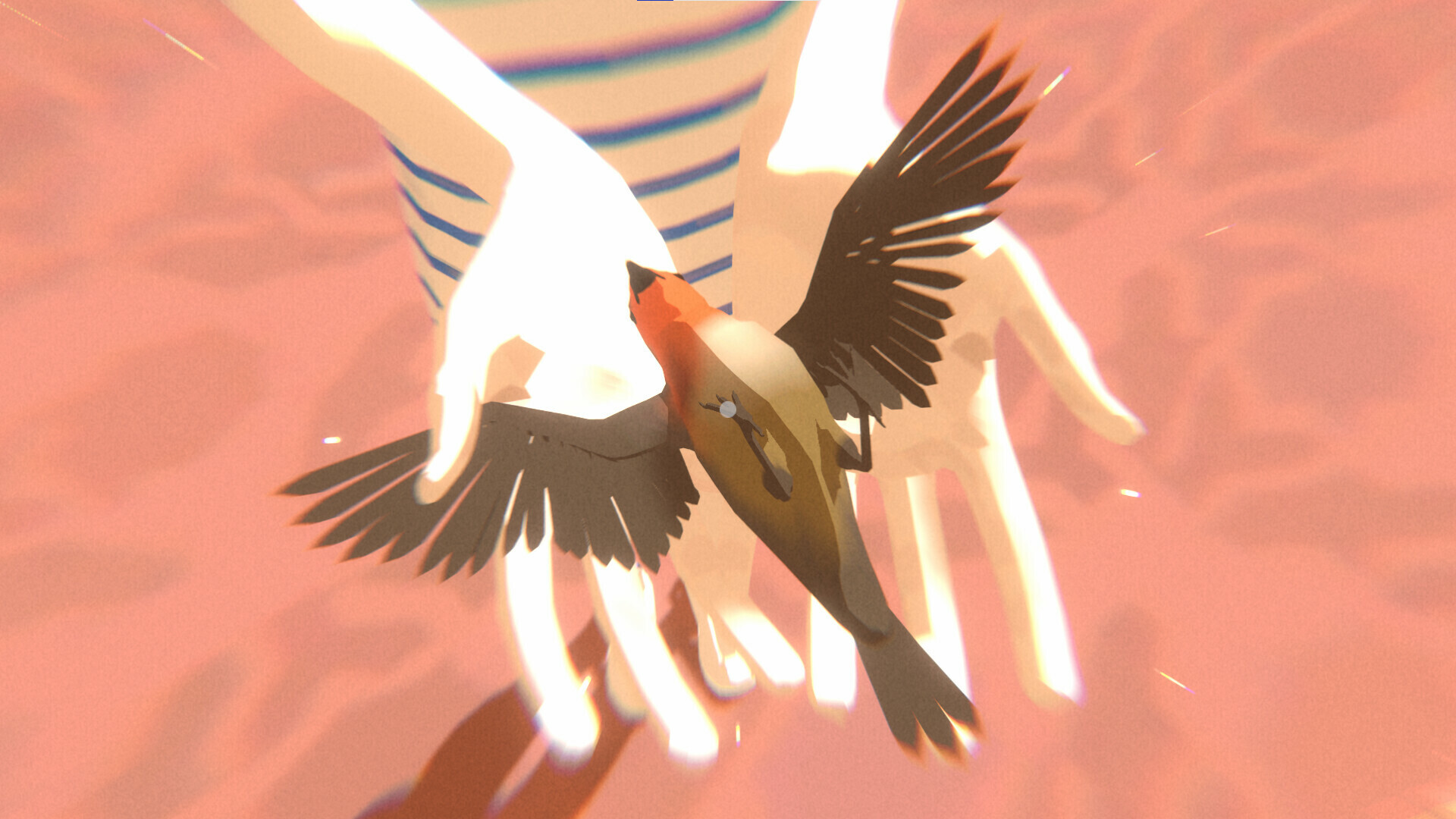 We’d like to thank Florent and The Pixel Hunt very much, both for shedding more light on the game and for joining our catalog. We hope you’ve enjoyed reading these great answers as much as we’ve enjoyed talking to The Wreck’s creator. There’s only one thing left to do: enriching your library with this gem and experiencing Junon’s story yourself.
We’d like to thank Florent and The Pixel Hunt very much, both for shedding more light on the game and for joining our catalog. We hope you’ve enjoyed reading these great answers as much as we’ve enjoyed talking to The Wreck’s creator. There’s only one thing left to do: enriching your library with this gem and experiencing Junon’s story yourself.  The Wreck, as well as other studio’s titles are mature, narrative-driven visual novels which focus on very emotional aspects of our lives, with all its ups and downs. What makes video games a good medium for experiencing such stories?I’ll admit it’s a tad counter-intuitive indeed! Usually, when we think about video games, we imagine power fantasies that throw us in an imaginary world, far away from our everyday life. Games are more often than not action-packed, systems-based, and they provide us with a much needed escapism. But at The Pixel Hunt, we try to explore other aspects of what they can be. That’s probably related to the fact that I’ve been a journalist for 10 years before switching careers: I’m really interested in the real world around us, and the stories within it. I find it amazing to try and tell those stories - which are often challenging and sad, but also always hopeful - in an interactive way, for players to explore them. Games allow us to make decisions and face consequences in a confined and safe space, and thus to understand complicated situations in an intimate way. I think it’s a very cathartic medium, especially when it’s reality-inspired.Could you share more light about the process of writing the story of The Wreck? What was your main inspiration for this project?As we were putting the final touches to our previous title, Bury me, my Love, I was driving my youngest daughter to daycare when our car got into a collision with a truck. Luckily nobody was hurt, but the experience in itself was very intense. I had the feeling that time was slowing down, and I experienced what I thought was a movie trope: I saw fragments of my life flash before my eyes. It was very weird. I looked into it afterwards and it turns out there’s a scientific explanation: when you’re facing an extreme situation, your brain parses your memories in search of significant previous experiences - so those “images” you “see” may be proof of its frantic activity to try and save you. I thought it was an interesting basis and setting for a game. Coming up with the story was then pretty straight forward: as I didn’t want to make a game that would “just” be depressing, I tried to imagine a character who had nowhere to go but up - that’s how Junon, our main protagonist, was born.
The Wreck, as well as other studio’s titles are mature, narrative-driven visual novels which focus on very emotional aspects of our lives, with all its ups and downs. What makes video games a good medium for experiencing such stories?I’ll admit it’s a tad counter-intuitive indeed! Usually, when we think about video games, we imagine power fantasies that throw us in an imaginary world, far away from our everyday life. Games are more often than not action-packed, systems-based, and they provide us with a much needed escapism. But at The Pixel Hunt, we try to explore other aspects of what they can be. That’s probably related to the fact that I’ve been a journalist for 10 years before switching careers: I’m really interested in the real world around us, and the stories within it. I find it amazing to try and tell those stories - which are often challenging and sad, but also always hopeful - in an interactive way, for players to explore them. Games allow us to make decisions and face consequences in a confined and safe space, and thus to understand complicated situations in an intimate way. I think it’s a very cathartic medium, especially when it’s reality-inspired.Could you share more light about the process of writing the story of The Wreck? What was your main inspiration for this project?As we were putting the final touches to our previous title, Bury me, my Love, I was driving my youngest daughter to daycare when our car got into a collision with a truck. Luckily nobody was hurt, but the experience in itself was very intense. I had the feeling that time was slowing down, and I experienced what I thought was a movie trope: I saw fragments of my life flash before my eyes. It was very weird. I looked into it afterwards and it turns out there’s a scientific explanation: when you’re facing an extreme situation, your brain parses your memories in search of significant previous experiences - so those “images” you “see” may be proof of its frantic activity to try and save you. I thought it was an interesting basis and setting for a game. Coming up with the story was then pretty straight forward: as I didn’t want to make a game that would “just” be depressing, I tried to imagine a character who had nowhere to go but up - that’s how Junon, our main protagonist, was born. The Wreck’s tale also focuses on the time itself, the past, the present and the future and how they all affect life. Could you elaborate on this theme?This specific theme is a bit more intimate. For a long, long time, I was rather afraid of change. I’m not sure why exactly - although I have ideas - but I had to wait until I was in my 30s to make life changing decisions. And this happened only because at that time, I had to face a rather complicated personal situation. The thing is, I didn’t become “someone new”. I’m still very much the me I was in the past. Just, something clicked, and from that moment on taking risks and making “big” decisions, decisions that were coherent with who I am, was suddenly not complicated anymore. That actually is what The Wreck’s story is all about: how, sometimes, trauma can lead you to reconnect with the person you’ve always been, and allow this person to bloom in the future. I hope that doesn’t sound too cheesy when said out loud!
The Wreck’s tale also focuses on the time itself, the past, the present and the future and how they all affect life. Could you elaborate on this theme?This specific theme is a bit more intimate. For a long, long time, I was rather afraid of change. I’m not sure why exactly - although I have ideas - but I had to wait until I was in my 30s to make life changing decisions. And this happened only because at that time, I had to face a rather complicated personal situation. The thing is, I didn’t become “someone new”. I’m still very much the me I was in the past. Just, something clicked, and from that moment on taking risks and making “big” decisions, decisions that were coherent with who I am, was suddenly not complicated anymore. That actually is what The Wreck’s story is all about: how, sometimes, trauma can lead you to reconnect with the person you’ve always been, and allow this person to bloom in the future. I hope that doesn’t sound too cheesy when said out loud! Florent, you are a former gaming journalist, is that background something that helps you now, when you stand on the opposite end of the industry? How does it affect your work?Actually, I was a kids’ journalist, not exactly a gaming journalist. But that might have been even better. I have had to play a lot of video games that I probably would never have touched otherwise (and got to learn who Alexandra Ledermann is along the way), which was pretty cool because as a game designer I firmly believe that inspiration and game mechanics ideas can come from anywhere (even from outside video games!). But also, writing for kids is a great exercise: you have to be absolutely sure to understand the complicated things you’re writing about in order to explain them in the simplest possible ways. It’s a great way to develop an analytical mind, communication skills, and research abilities, qualities that are very much needed as a gamedev. In general, I’d say that the industry benefits greatly from making room for people with different backgrounds anyway. It’s true for the skill sets, of course, but also in a more general sense. If we want more diverse games, we need more diverse teams, more women, more POC, more people from varied socio-economic backgrounds. And it’s maybe because I’m getting old and I’ve played a lot, but I personally think we could REALLY enjoy more diverse games!
Florent, you are a former gaming journalist, is that background something that helps you now, when you stand on the opposite end of the industry? How does it affect your work?Actually, I was a kids’ journalist, not exactly a gaming journalist. But that might have been even better. I have had to play a lot of video games that I probably would never have touched otherwise (and got to learn who Alexandra Ledermann is along the way), which was pretty cool because as a game designer I firmly believe that inspiration and game mechanics ideas can come from anywhere (even from outside video games!). But also, writing for kids is a great exercise: you have to be absolutely sure to understand the complicated things you’re writing about in order to explain them in the simplest possible ways. It’s a great way to develop an analytical mind, communication skills, and research abilities, qualities that are very much needed as a gamedev. In general, I’d say that the industry benefits greatly from making room for people with different backgrounds anyway. It’s true for the skill sets, of course, but also in a more general sense. If we want more diverse games, we need more diverse teams, more women, more POC, more people from varied socio-economic backgrounds. And it’s maybe because I’m getting old and I’ve played a lot, but I personally think we could REALLY enjoy more diverse games! Is there anything you’d like to tell our community before they jump into the skin of Junon and explore her story?Good luck and have fun! Or don’t, actually. I’m not a huge fan of this association, “games = fun”. Don’t get me wrong, though: I too absolutely love playing games “just for fun”, throwing fireballs, making things explode and slashing through mobs of enemies. I just think it’s not mandatory. Not every movie is a superhero blockbuster. Not every novel is written by Tom Clancy. And it always makes me a little bit sad when I read player reviews that say that a game isn’t “a real game” because it’s “not even fun”. Video games can be entertaining in a lot of different ways, to a lot of different players. So good luck and cry a bit and end your playthrough with a sigh of relief because you feel like an invisible weight has been lifted off your chest, even though you didn’t even know it was there to begin with. That’s the absolute best compliment I could dream of.
Is there anything you’d like to tell our community before they jump into the skin of Junon and explore her story?Good luck and have fun! Or don’t, actually. I’m not a huge fan of this association, “games = fun”. Don’t get me wrong, though: I too absolutely love playing games “just for fun”, throwing fireballs, making things explode and slashing through mobs of enemies. I just think it’s not mandatory. Not every movie is a superhero blockbuster. Not every novel is written by Tom Clancy. And it always makes me a little bit sad when I read player reviews that say that a game isn’t “a real game” because it’s “not even fun”. Video games can be entertaining in a lot of different ways, to a lot of different players. So good luck and cry a bit and end your playthrough with a sigh of relief because you feel like an invisible weight has been lifted off your chest, even though you didn’t even know it was there to begin with. That’s the absolute best compliment I could dream of. We’d like to thank Florent and The Pixel Hunt very much, both for shedding more light on the game and for joining our catalog. We hope you’ve enjoyed reading these great answers as much as we’ve enjoyed talking to The Wreck’s creator. There’s only one thing left to do: enriching your library with this gem and experiencing Junon’s story yourself.
We’d like to thank Florent and The Pixel Hunt very much, both for shedding more light on the game and for joining our catalog. We hope you’ve enjoyed reading these great answers as much as we’ve enjoyed talking to The Wreck’s creator. There’s only one thing left to do: enriching your library with this gem and experiencing Junon’s story yourself.